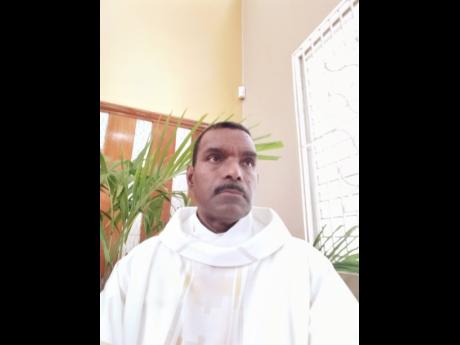Sean Major-Campbell | The eunuch is special to God, too
ON THIS fourth Sunday of Pride Month, we take a closer look at the eunuch in the Bible. We start with the little chorus: “ Daniel’s God sure will deliver. Daniel’s God surely will deliver. If you only look to God by faith, Daniel’s God surely will deliver.”
We often miss the change and evolution in theological thought that takes place in the Bible, because we often hear that God does not change. Well, the Bible is not God. It represents what people have understood about God over time. And yes, their understanding of God or theology evolves.
While it would not be accurate to apply the term LGBTQI+ to eunuchs in the Bible, the application bears relevance in the wider context of gender and sexual diversity, along with the attendant discrimination and changing attitude towards eunuchs. K. Renato Lings, in Holy Censorship or Mistranslation, notes that “Regarding eunuchs, it was parents or slave owners who made the decision to castrate a boy. In addition, male prisoners of war were frequently subjected to castration. By contrast, in some parts of the modern world it is legal for LGBT persons to choose a same-sex life companion. Similarly, in several countries today, transgender persons can decide for themselves (under medical supervision) to undergo surgical intervention.”
It is to be observed that eunuchs served as ministers, governors, and administrators. They also served as guardsmen of royal harems. After all, they could not have sexual relations with the king’s women. They also had no obligation to have and take care of children. What, however, does a closer look at the approach to eunuchs reveal?
Interestingly, Daniel is among a group of young men taken to Babylon for a three-year course of traini ng to serve in the king’s court. Daniel Chapter 1 states, “Then the king ordered Ashpenaz, chief of his court officials, to bring into the king’s service some of the Israelites from the royal family and the nobility; young men without any physical defect, handsome, showing aptitude for every kind of learning, well informed, quick to understand, and qualified to serve in the king’s palace. He was to teach them the language and literature of the Babylonians.” Was Daniel a eunuch? In 2 Kings 20:18, “And some of your descendants, your own flesh and blood who will be born to you, will be taken away, and they will become eunuchs in the palace of the king of Babylon.” Some believe that this text may affirm the strong likelihood of Daniel being a eunuch.
It is to be observed that in Deuteronomy, a castrated man was to be excluded from fellowship with believers in the temple. In antiquity, it was also known that some eunuchs had sexual relations with other men. Lings notes, the exclusion of eunuchs may be due to several factors: “(a) they stem from other nations; (b) they have been taken as prisoners of war and subsequently castrated; or (c) they are regarded as unclean because of their missing testicles, according to the concepts of purity and impurity, which plays a major role in the Pentateuch and several prophetic books”.
Read about the call for Jeremiah to be put to death in Jeremiah 38. See how he was placed in a pit to sink in mud. The only one to advocate for his rescue was the African eunuch Ebed-Melech. And by the way, he was a foreigner.
Today, many Christians sing this spirited chorus without even realising that it was inspired by the actions of an African eunuch:
“He lifted me up from the miry clay.
He planted my feet on the king’s highway;
And this is the reason why I sing, and I shout
My Jesus came down, and lifted me up.”
How interesting that the word of God through Jeremiah to Ebed-Melech was that when Jerusalem is conquered, Ebed-Melech would be saved. Wow! Read about this in Jeremiah 39, “But I will rescue you on that day, declares the Lord; you will not be given into the hands of those you fear. I will save you; you will not fall by the sword but will escape with your life, because you trust in me, declares the Lord.’”
You will not hear much about this in Jamaica’s cultural context, but imagine the Prophet Isaiah in chapter 56 declaring a different approach to foreigners and eunuchs! “… these I will bring to my holy mountain and give them joy in my house of prayer. Their burnt offerings and sacrifices will be accepted on my altar; for my house will be called a house of prayer for all nations”. By the time we get to the Ethiopian eunuch in the New Testament, who remembers that, indeed, God’s house would be a house of prayer for all nations? And who realises that gender and sexual minority concerns are of no moment in determining the worthiness of anyone?
The Ethiopian eunuch is the Caribbean man who fails on several counts. Not being a ‘gyalis’ or having ‘nuff gyal in a bungle’. Not getting married. Not having children. Not producing grandchildren. Not misogynistic. He is condemned, and the stigma is real. Bear in mind, that stigma then leads to discrimination. In fact, much of American evangelicalism is more concerned with the ‘anti-eunuch’ stance that it is concerned with advancing human-rights protection for all.
May we sing with the Ethiopian Eunuch that indeed, Daniel’s God surely will deliver.
Fr Sean Major-Campbell is an Anglican priest and advocate for human dignity and human rights. He is the recipient of the 2017 Ally of the Year Award for advancing the protection of LGBT persons around the globe (presented in the Hall of the Americas, OAS, in Washington, USA). seanmajorcampbell@yahoo.com. Send feedback to columns@gleanerjm.com.

